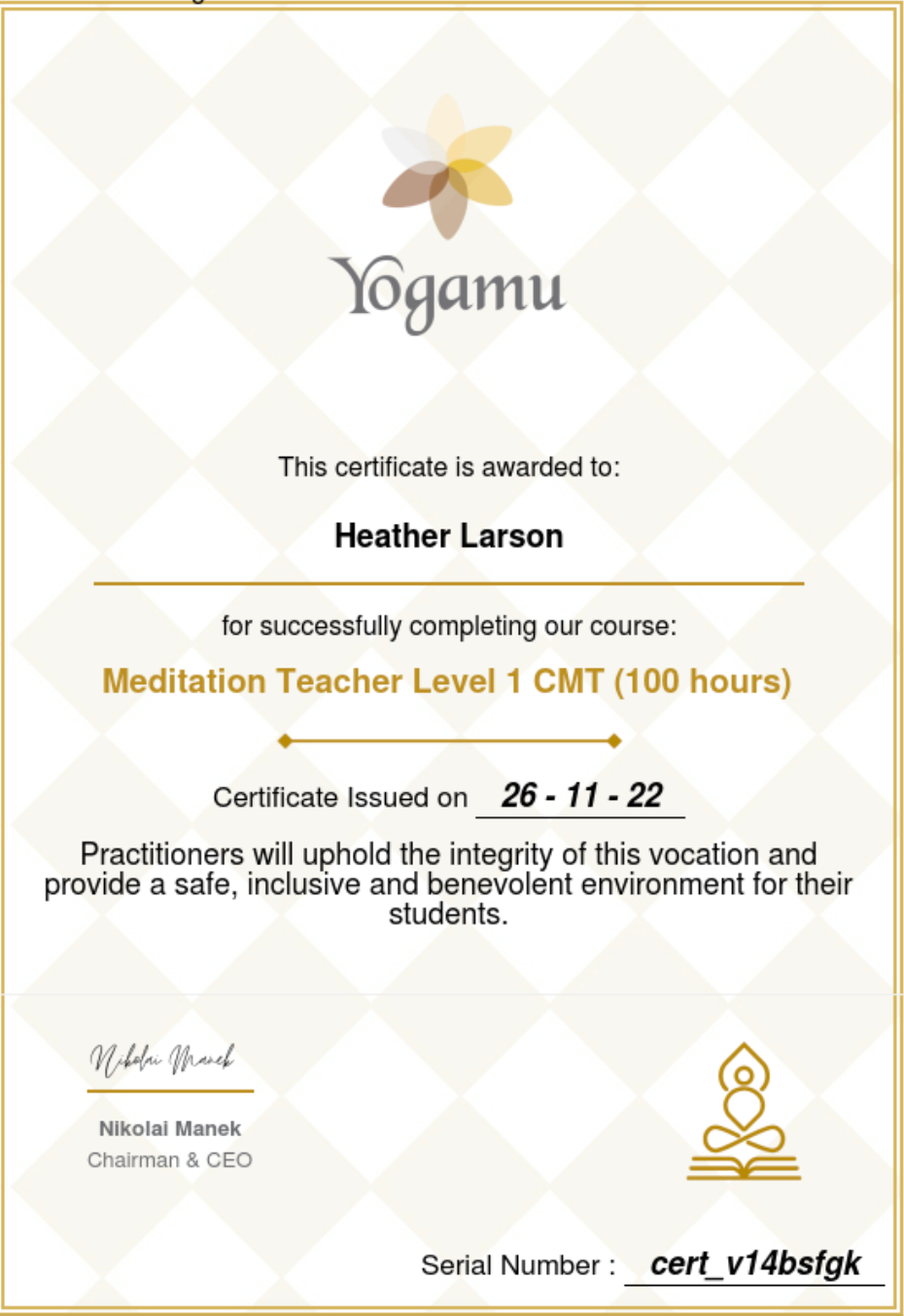What Meditation Really Is Vs. What People Think It Is

I just completed my 100-hour meditation teacher certification from Yogamu! I’m now ready to teach mediation to others, like you. To celebrate, let’s talk briefly about what people think meditation is versus what it really is.

As a meditator, I once struggled to define what it is and what it could do. It’s a good thing its benefits become clearer the more you practice—but they’re not entirely what you think they are.
When I tell people I meditate, I’m greeted with, “Oh you’re so good,” or, “That’s such a good habit, I wish I could do that.” Truth is, I don’t meditate to “be good.” And meditation is just a quiet minute away if you want to practice it.
(Though if you’re diagnosed with certain mental illnesses, meditation can be contraindicated, so please check with your mental healthcare professional first).
One of the most common things people say about mediation is they think they can’t do it because their mind is never quiet.
No one has a quiet mind; this is the entire point of meditation! We endeavor to learn to quiet it!
(Yes, I know there are unicorns who say there are no thoughts in their mind or they see nothing when people tell them to visualize; we can discuss this in another post).
Yes, You CAN Meditate
If I can do it, so can you. I’ve struggled with racing or ruminating thoughts when stress is present in my life. This makes meditation challenging but not impossible. There’s no score card. No one is keeping track if you struggle with your meditation one day. Just keep going, acknowledge the suck, and be open to what even a crappy day meditating can teach you.
Does Meditation Stop Ruminating Thoughts? Nope.
But it has made me more aware of them so I can take action to deal with them. Mediation has helped me become more observant like that. When you sit down to close your eyes and feel bombarded by thoughts and to-do’s, just witness them. Allow yourself to sit in the stillness without being triggered to get up and write down another item on the to-do list.
It’s harder than I make it sound. When I first started to meditate, I would sit with a pen and paper beside me in case I had thoughts or to-do list items I *had to* write down. Over time, I have realized that my thoughts aren’t that important. I can let them go and give myself the gift of peace.
The Biggest Misconception About Meditation
Meditation isn’t all “love and light.” While meditation can bring us these things, they aren’t the only part of the human experience.
I’ve learned meditation is a lot less “love and light” and lot more about embodying the qualities of a spiritual warrior. Meditation hasn’t made me some blissful, “live laugh love” Auntie who can fix the world with a bundle of sage and a chant of “Aum.”
Here’s what meditation has brought me:
• The ability to observe thoughts, tone, behaviors, speech, and self
• More self-awareness over time
• Stronger boundaries
• The ability to come home to myself
• A way to both begin and end my day
• Lower blood pressure (this is not medical advice and please consult your physician about whether meditation practice is safe for you—especially if you’re on blood pressure medications).
• A way to deepen my yoga practice
• A way to attempt to become more comfortable in my body after illness
For me, meditation has helped me deepen my Reiki Practice and vice versa. It’s been interesting for me to find ways in which all these practices align and compliment each other. Meditation is part of—not separate from—both Reiki and yoga.
How to Start Practicing Meditation
If you want to practice mediation, just start with one minute a day in which you close your eyes, sit still, and witness your breath. Don’t try and change anything. Don’t try to judge or question it. Just let a full :60 pass as you sit and breathe. It’s a humble beginning, but it’s that simple.
